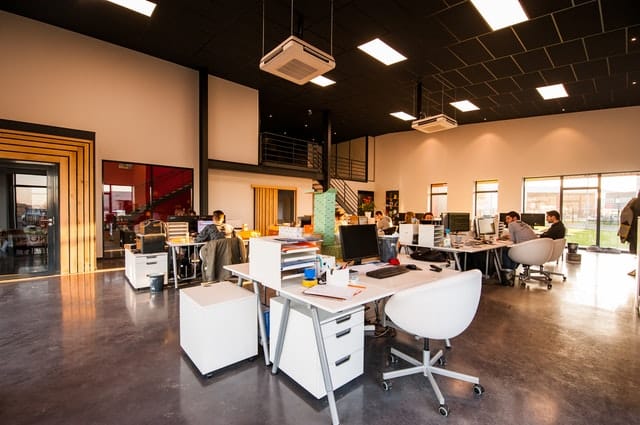There are many things businesses and organizations can and should do to promote good hygiene in the workplace, such as regular and thorough cleaning and proper waste disposal. However, they cannot maintain exemplary workplace hygiene without their employees’ complete participation. Any organization is only as strong as its weakest link, so businesses must make efforts to ensure their staff members maintain good hygiene in the workplace.
Good hygiene at work is critical to stop the spread disease and infection at any time, and now more than ever. Not only is this part of any organization’s duty of care to its employees and visitors, but it is also in their interest: illness and absenteeism can cost businesses significantly in lost productivity. Additionally, workplaces can be a centre for transmission during a pandemic, so proper workplace hygiene etiquette to stop the spread of infection is also part of their responsibility to the community in general.
Tips over How to Maintain Good Workplace Hygiene.
1. Encourage Regular Hand-Washing
A key part of proper hygiene in the workplace is regular hand washing. We carry viruses and bacteria on our hands that we then pass on to others when we touch common objects or surfaces. In fact, around 80% of all diseases are transmitted through touch. Regularly washing our sanitizing their hands can prevent employees from spreading germs throughout the workplace.
Train your staff in how to properly wash their hands – which means for 20 seconds with soap and running water – and reinforce this with signs above the washbasins. Also make sure that washrooms are well stocked with soap or hand wash. You should also supply hand santizer and disinfectant wipes to your team so they can frequently sanitize their hands and disinfect surfaces. A great idea is to put travel-sized hand sanitizer on every desk.
2. Train Your Staff
It is critical that you educate your team on health risks and the hygiene measures that can prevent the spread of infection. Be sure to communicate clearly with your team about current health risks and recommended office hygiene practices. Use current information that is relevant to the season and your industry. Keep communication two-way: encourage staff to raise concerns and ask questions.

3. Reinforce Information with Signage
Although training is essential, it doesn’t last forever. It is also important to reinforce this information over time. A great way to do this is by using signage throughout the workplace. Posters and signage is subtle yet effective way to remind your employees of the importance of workplace hygiene.
Posters and other information should be placed in key places around the workplace, including bathrooms and break areas as constant reminders. These could cover topics such as good respiratory hygiene, proper hand washing techniques, and cleaning recommendations.
Also Read: How to Organize an Office: 5 Super Helpful Tips
4. Use Technology to Minimize Risk
There are also some structural things you can do to promote better hygiene practices in your workplace. The development of technology has assisted greatly with this. For example, you can implement equipment and tools that will reduce the need to touch surfaces and therefore lower the risk of transmission of viruses and bacteria.
These include double swinging push doors that reduce the need to touch door plates or door handles, and motion sensor lights instead of light switches. You may be able to address this by implementing certain broad policies, such as an employee dress code. It could also be necessary to have a gentle conversation with certain individuals.

5. Encourage Good Personal Hygiene
Maintaining good workplace hygiene not only depends on what your employees do at work, but also their habits at home. It is important that your staff develop good office hygiene etiquette in their personal lives so that hygiene issue do not carry over into the workplace.
Any issues in this area, of course, can be very delicate and difficult to address.
Also Read: Office Move Checklist: Project Plan for a Successful Relocation
6. Make Sure Employees Eat Only in Designated Areas
One of the biggest offenders when it comes to poor hygiene in the workplace, believe it or not, is food. It is not uncommon for staff members to eat lunch or snack at their desk or other work areas. In fact, this is becoming increasingly common as pressure increases in many workplaces, and people work through their lunch breaks in order to meet deadlines.
However, this is a disaster for hygiene in office space. When staff members eat at their workspace this scatters bits of food and debris, which in turn encourages the growth of bacteria and other germs. To avoid this, you should insist that staff eat exclusively in designated areas such as the break room or kitchen. Taking a break will also help with your employees’ mental health and productivity!

7. Arrange Meetings to Appreciate Who Manage Workplace Hygiene
Of course, you can arrange an office meeting to educate your employees about the hygiene rules and encourage them to maintain a better workplace. Similarly, you can set a regular meeting with different teams to acquire their ideas and suggestions they have regarding the place hygiene and office management.
After all, they are the ones who directly operate at a certain place, so they can give you a better insight into what to do for making a clean office space. Moreover, you can compliment your employees and teammates, who contribute to maintaining office hygiene etiquette. That certainly inspires others to do the same, also supporting the ones who follow it.
Also Read: Five Best Practices to Ensure Employee Productivity
8. Make Sure to Set a Garbage Disposal System
In order to avoid office wastages, smells from over-flowed trash bins, you need to arrange the garbage disposal system first. Provide the desk-wise garbage bins, so that employees don’t have to leave junks anyway, and at anywhere.
Further, make sure to follow a system to empty the bins daily from time to time. Advice your employees, to use different trash bins for wet and for dry wastes. Such habits ultimately save the efforts of office servants, and also keep the office environment clean and refreshing via eliminating the chances of bad smellings.

9. Check for the Air-circulation System.
Having a better air circulation system is a way to prevent deadly stinks from damaging employee morale. Office interior plays a major role in making the air-free environment and let the employee freely adjust to the workplace. Mismanagement of the available space can cause discomfort to your employees and issues about workplace hygiene etiquette.
Plan in advance. Make sure cubicles and cabin arrangements are at best, to handle the available work staff. Manage your air circulation system according to the number of employees at a particular cabin, plus arrange air conditioning and cooling system likewise.
Also Read: How to Make Your Air Conditioner Serve You for Longer
10. Give Employee a Required Sick Leave.
Due to the current scenario and safety needs of every other worker, you require to prioritize your employees’ health first. For that, don’t force your employee to follow certain guidelines related to taking leaves and day-offs. Prefer a dynamic system to approve leaves depending on the situation, and give employees time to take rest and recover from illness.
And if it’s possible, then allow your employee to work from home and manage the remote system accordingly. That may prevent spreading germs at your office space and other employees also will be safe from infections from it. Don’t stick to rules and regulations that force employees to come to the office, even if they are not in a situation to work actively. Always be ready to help them with sick leaves and day-offs.

11. Hire Professional Office Cleaning Services
This is not the right time to leave office hygiene, and the safety of employees at the chance, at any cost. Find, reach out to office cleaning services in your area. Apart from educating your employees, you also need to hire a cleaning company to clean your workplace on a regular basis. Having an active cleaning system will improve your workspace quality and inspire your employees to maintain office hygiene.
Moreover, a clean workplace itself influences your employees to maintain workplace hygiene and cleanliness ultimately. That gives them another reason to keep their own desk clean and understand responsibility towards the company and their surroundings.
Also Read: Is a Maid Service Worth It?
Final thought:
Managing hygiene etiquette, is essential not only because of the present scenario of coronavirus and all, But also due to making employees feel like a sound working environment. As workplace conditions also play a major role in inspiring employees to contribute to the company.
Working at home or at the office, managing cleanliness is always the first thing to improve work productivity. It’s an individual’s responsibility to take care of the place’s sanitation for ownself and for others, as well. Again, it’s not a responsibility to be taken by one person or being served by the cleaning services only, it’s overall team efforts combinedly to manage the sound working environment via securing workplace hygiene.






